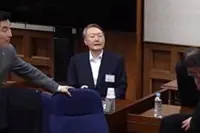SEOUL: The compounding challenges of South Korea’s low birth rate and the onset of a super-aged society have drawn little focus on the presidential campaign trail for the June 3 presidential election.
The numbers alone underscore the urgency of strategically and systemically confronting the demographic crisis.





